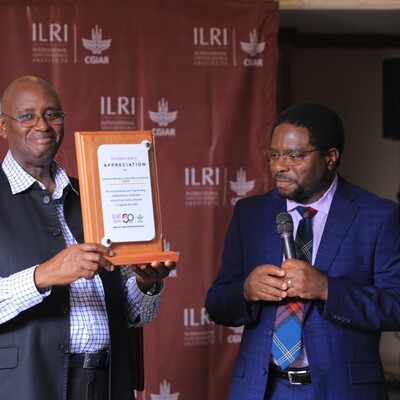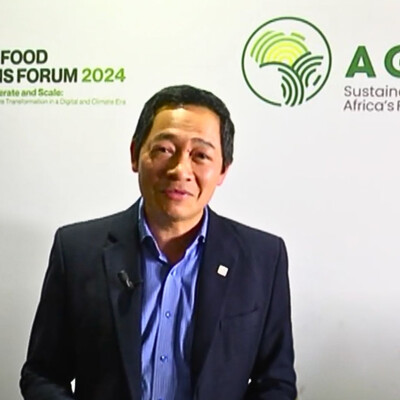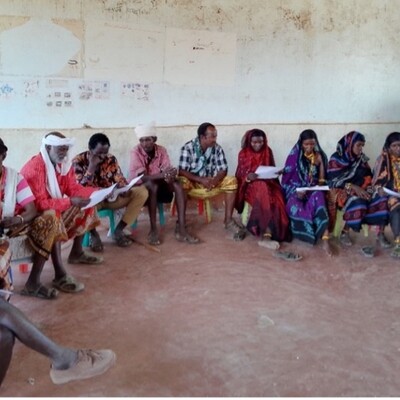

Delia Grace Randolph appointed 'Honorary Doctor' by the Swedish University of Agricultural Sciences
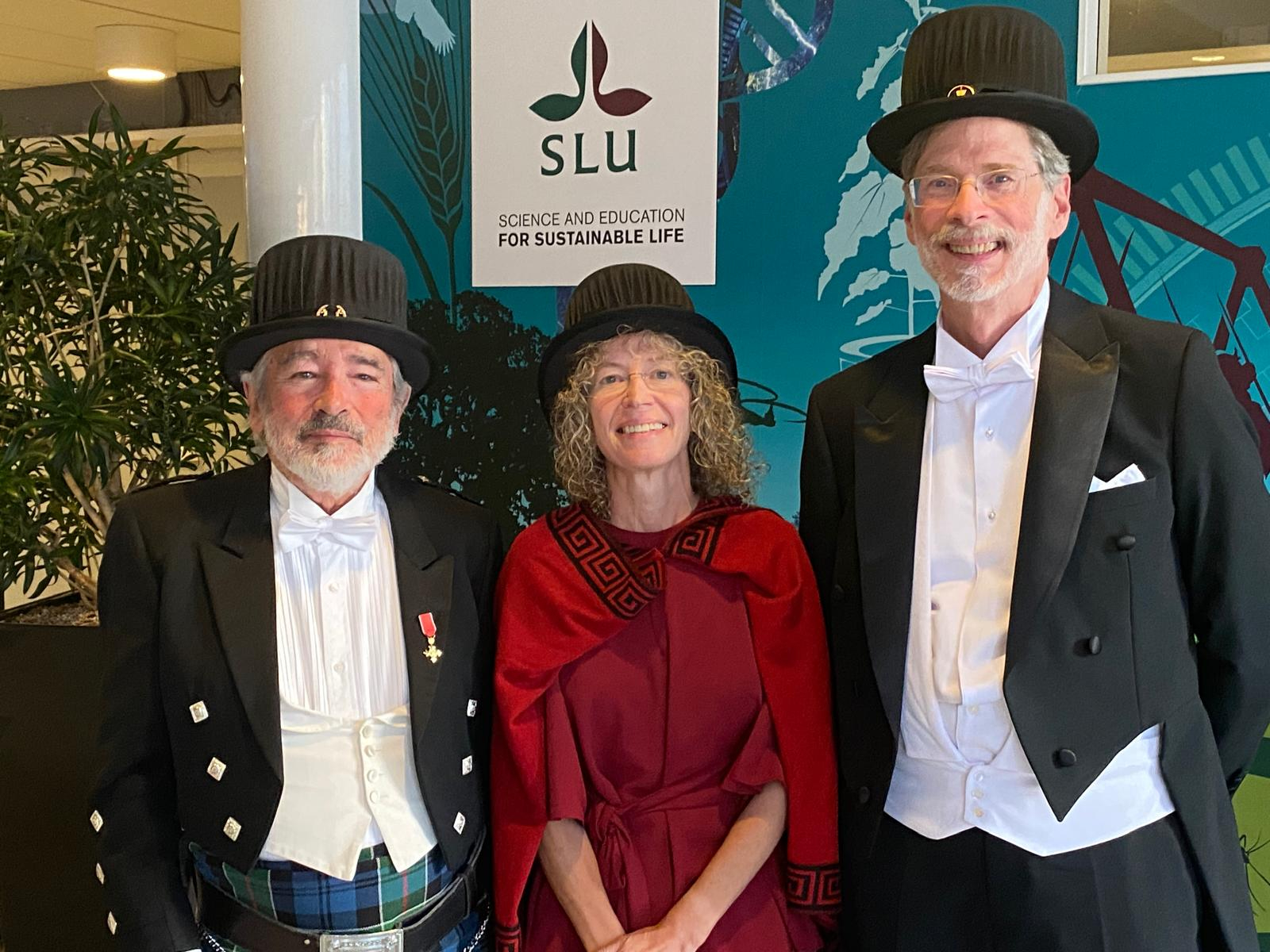
Delia Grace Randolph and Tom Randolph and Brian Perry form a kind of 'epidemiological triumvirate': All three have worked together on veterinary epidemiological and socioeconomic research at the International Livestock Research Institute (ILRI), in Nairobi, Kenya, and all three have now been awarded the highest of Swedish academic honors with their appointments of 'Honorary Doctor of Veterinary Medicine' by the Faculty of Veterinary Medicine and Animal Science at the Swedish University of Agricultural Sciences (SLU), in Uppsala.
A British veterinarian, an American agricultural economist and an Irish veterinary epidemiologist walk into a [bar] research centre . . .:
For nearly four decades, ILRI’s epidemiology and socioeconomic researchers have advanced understanding of the animal health issues affecting development. British veterinarian Brian Perry arrived at ILRI's predecessor, the International Laboratory for Research on animal diseases (ILRAD) in 1987 to build the institute’s first epidemiology and socio-economics program, which initially focused on better controlling East Coast fever and African animal trypanosomiasis and later widened to include Rift Valley fever, rinderpest, foot-and-mouth disease and avian influenza. A decade later, in 1998, American Tom Randolph joined ILRI’s epidemiology team as an agricultural economist. He expanded the institute’s impact assessments of livestock diseases and their control and later initiated a program on the human health impacts of livestock keeping. Together, Perry and Randolph and their teams helped to transform traditional epidemiological studies into ‘animal health economics’, which integrated epidemiological data into economic frameworks. In 2002, Irish veterinary epidemiologist student Delia Grace joined Perry and Randolph’s epidemiology team to conduct her PhD research on preventing parasite resistance to drugs used to treat African animal trypanosomiasis. In 2006, Delia started working at ILRI on One Health issues, particularly those concerning food safety risks in informal markets and links between zoonotic diseases—human diseases transmitted from animals—and agricultural and livestock production in developing countries. Brian Perry and Tom Randolph today are both Emeritus Fellows of ILRI; Delia Grace Randolph is serving jointly as a professor of food safety systems at the Natural Resources Institute (University of Greenwich) and as a leader of food safety and zoonotic disease research at ILRI.
Brian Perry was bestowed the prestigious SLU award in 2015 'for his expertise in the fields of epidemiology, the financial consequences of animal diseases and the importance of animal husbandry for development and financial growth in developing countries', Tom Randolph was conferred the award in 2019 'for his contributions to the understanding of the need of a social and economic perspective on animal health interventions in low-income countries.'
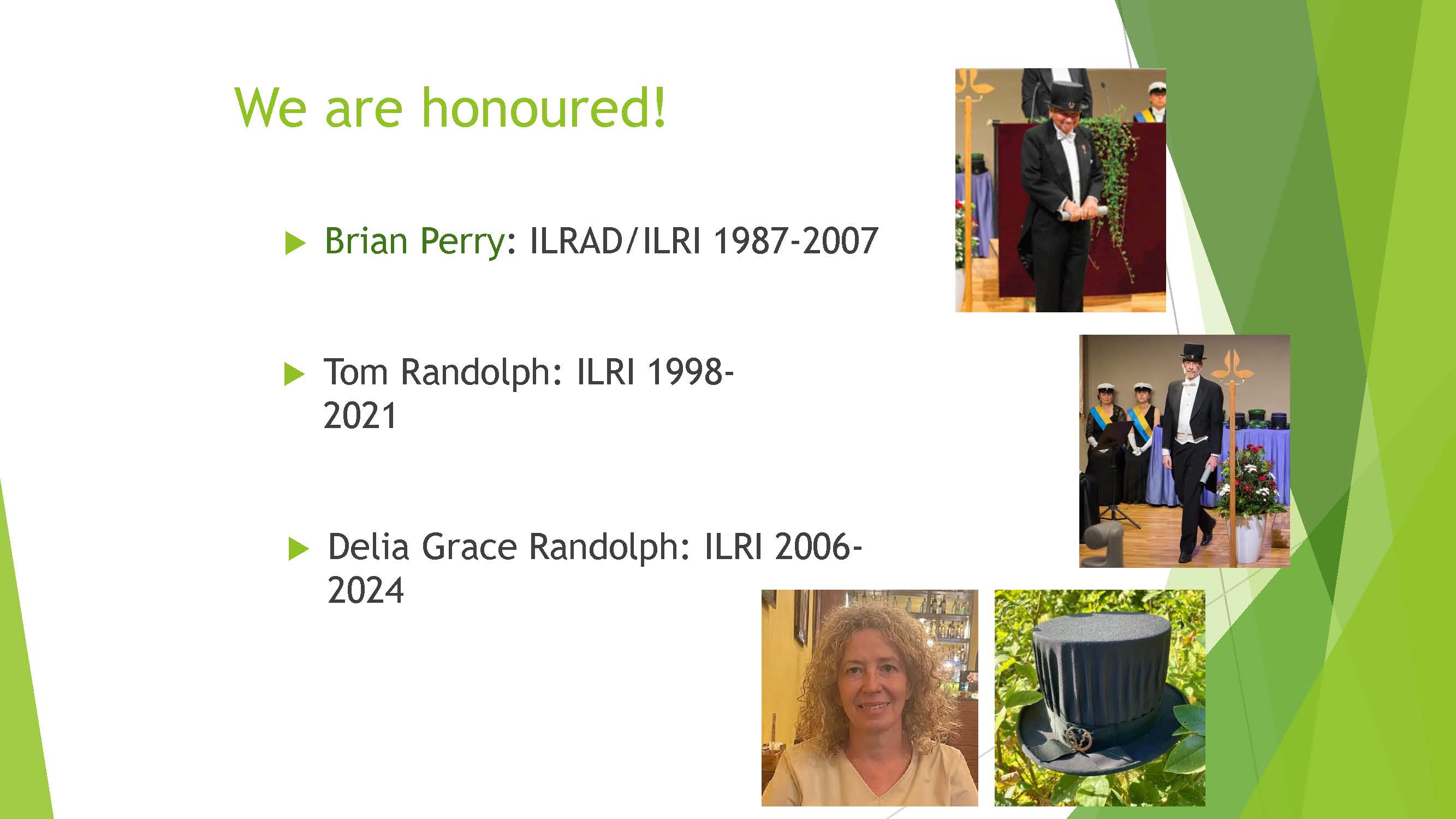
As ILRI reported at the time of Tom Randolph's award, the award ceremony is a very distinguished affair:
'The march of honorary graduates into the brightly lit awards hall, together with the university’s vice-chancellor and other dignitaries, was accompanied by trumpets and banners reminiscent of royal middle age courts. The women wore long evening gowns while the men sported ‘frack’: the Swedish version of white bowties, waistcoats and black tails. The ceremony was delivered in a mixture of Swedish, Latin and some English, while awardees were bestowed a diploma, a gold ring embossed with the insignia of the awarding faculty and a pleated top doctoral hat–symbol of freedom and power, a throwback to ancient Roman times where only free men were permitted to cover their heads.'
This October 2024, it was the turn of Delia Grace Randolph, a veterinary epidemiologist and One Health-zoonotic disease-food safety expert on joint appointment with ILRI (Kenya) and the Natural Resources Institute (UK), to receive this prestigious award. She also happens to be married to her fellow awardee, Tom Randolph.
Delia received her degree in veterinary medicine (MVB) from the National University of Ireland. She completed her Master’s degree at the University of Edinburgh and was awarded her doctorate from Freie Universität Berlin. She has authored or co-authored over 300 scientific articles and has collaborated with UN agencies, including the World Health Organization (WHO), the Food and Agriculture Organization (FAO) and the World Organisation for Animal Health (WOAH).
Among her outsized contributions to research for development is that she virtually single-handedly raised the challenge of ensuring food safety in the 'informal markets' of the developing world—which are informal lifelines for the poor—to an issue now front and centre in global development discourse. (See her latest landmark report: Eating wild animals: Rewards, risks and recommendations, 2024.)
A recognized global leader in livestock-related food safety, One Health and zoonotic disease issues, her genuinely ground-breaking research has advanced understanding of human diseases spread from animals and the roles of animal-sourced foods in nutrition. She was among the first to identify the heretofore unrecognized but enormous burden of diseases among poor people that are caused by their consumption of contaminated foods. Her work provides practical, evidenced-based approaches and ways forward suiting the developing world, where the context, and thus options for problem-solving, are so very different from those in the developed world. Her demonstrable ability to draw on complex bodies of knowledge to help find real solutions to big development problems has led to real-world change.
Known for her provocative intellect and prodigious outputs, Delia is also a gifted writer (refreshingly intelligible and interesting) as well as a masterful scientist. And like Brian Perry and Tom Randolph before her, Delia is not so much a “moonshot” as a “groundshot” thinker—able to think clearly about practical and just solutions to address the inter-related diseases challenges of the developing world.
'Delia's significant international efforts have contributed to improving regulations and decision-making for food security and improved food safety and nutrition. And her expert knowledge in "One Health" research that addresses the links between animal health, human health and ecosystem health has been—and continues to be—a key asset for several SLU researchers.'
—SLU Award Ceremony
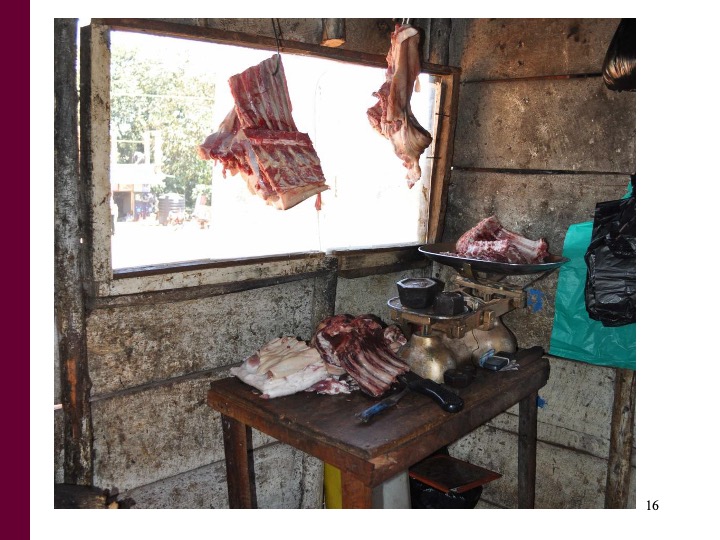
The public lecture Delia gave day before the award ceremony (4 Oct 2024) was on her work on food safety in informal markets of low-income countries. In her lecture, she dubbed these the 'majority' rather than the 'informal' markets'. 'These markets provide most of the fresh food consumed in Africa and Asia and offer many benefits to nutrition, health and livelihoods. At the same time the health burden of diseases acquired from food in these markets is comparable to that of malaria, HIV-AIDS or tuberculosis, and these informal or wet markets have also been strongly linked to the emergence of disease like Ebola and COVID, making de-risking informal markets a priority challenge for global health.'
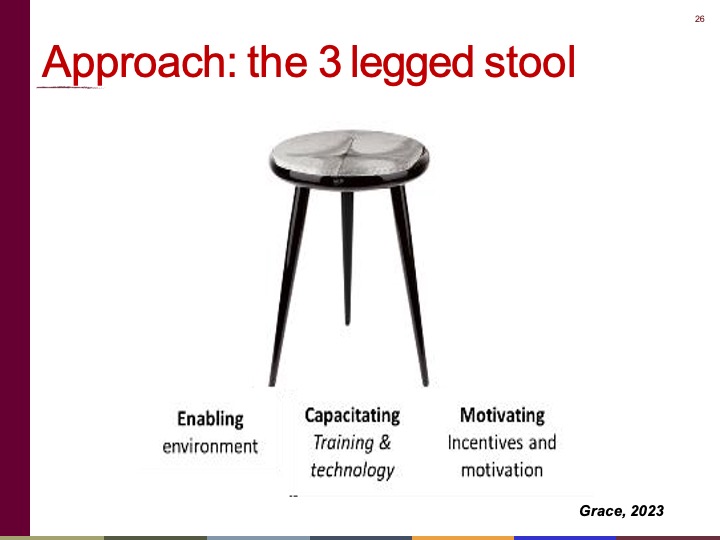
Delia's novel solution for this challenging foodborne disease problem is to take a 'three-legged stool' approach: 1) create an enabling regulatory environment for food safety, 2) provide informal food sector workers with training and simple technologies, and 3) motivate these workers with incentives for behaviour change.
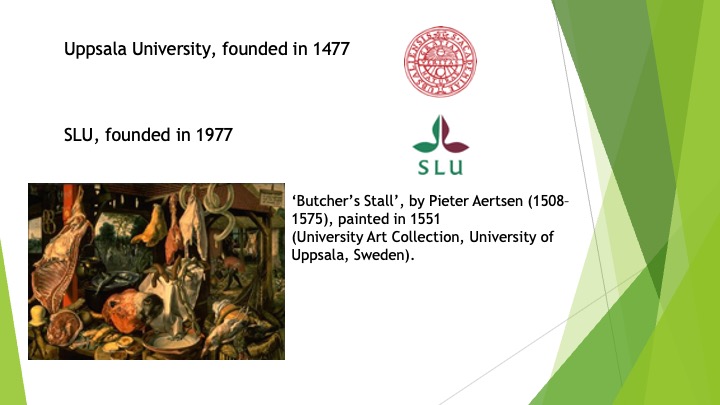
As Delia remarked, SLU has a long tradition of partnerships with the CGIAR centres and research programs and is committed to continue such strategic partnerships with CGIAR to reach the Sustainable Development Goals by 2030. Joint ILRI-SLU research in the past has included such topics as: animal genetics research and capacity development (e.g. red Maasai and Dorper sheep cross-breeding and high-level bioinformatics training courses); Biosciences eastern and central Africa Hub (e.g., Africa Biosciences Challenge Fund, Brachiaria grass breeding research, diagnostic platform and tissue culture transformation systems); controlling African swine fever outbreaks; evaluating avian influenza control methods; and One Health research (e.g., neglected zoonoses, food safety, controlling vector-borne and transboundary livestock diseases and reducing antimicrobial resistance).
On 3 Oct 2024, Brian Perry gave an interesting and colourful overview of the long-standing collaboration between SLU and ILRI, with several examples of major individual contributions of SLU members to the ILRI board and staff. His examples of collaborative research and capacity development included animal genetics with Sweden's Jan Philipsson and Erik Bongkam Rudloff; more recent collaborations in animal health, antimicrobial resistance and food safety with Sweden's Ulf Magnusson, Johanna Lindahl and Sofia Boqvist; and many other exchanges and informal contacts between the two organizations. SLU's Ulf Magnusson has been particularly key in developing a novel institutional relationship when SLU became a full partner of the ILRI-led CGIAR Research Program on Livestock from 2017 to 2021 and led its animal health component.
You may also like

ILRI News
Fostering collaboration between CGIAR and French institutions toward agriculture and health
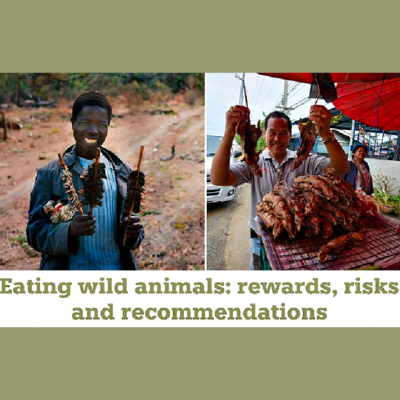
ILRI News
Major ILRI-CGIAR-livestock contributions at the recent World One Health Congress in Cape Town

ILRI News
Building capacity for the next generation of One Health researchers: Insights from SEAOHUN fellows at ILRI
Related Publications
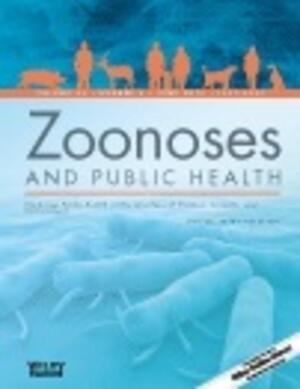
Integrated community-based reporting and field diagnostics for improved rabies surveillance in rural Laikipia, Kenya
- Odinga, Christian O.
- Thomas, Lian F.
- Wambugu, E.
- Ferguson, A.W.
- Fèvre, Eric M.
- Gibson, A.
- Hassell, James M.
- Muloi, Dishon M.
- Murray, S.
- Surmat, A.
- Mwai, P.M.
- Woodroffe, R.
- Ngatia, D.
- Gathura, P.M.
- Waitumbi, J.
- Worsley-Tonks, Katherine E.L.
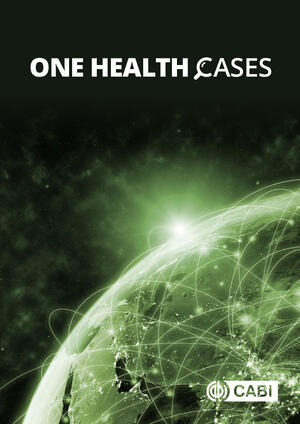
Advocating for a participatory approach to One Health capacitation in Malawi
- Wood, C.
- Parker, L.
- Richards, Shauna
- Mutua, Florence K.
- Wawire, P.
- Munthali, B.
- Mtegha, C.

Salmonella carriage by geckos detected within households in Malawi
- Wilson, C.N.
- Musicha, P.
- Beale, M.A.
- Diness, Y.
- Kanjerwa, O.
- Salifu, C.
- Katuah, Z.
- Duncan, P.
- Nyangu, J.
- Mungu, A.
- Deleza, M.
- Banda, L.
- Elviss, N.
- Jewell, C.P.
- Pinchbeck, G.
- Thomson, N.R.
- Feasey, N.A.
- Fèvre, Eric M.
- Makhaza, L.





